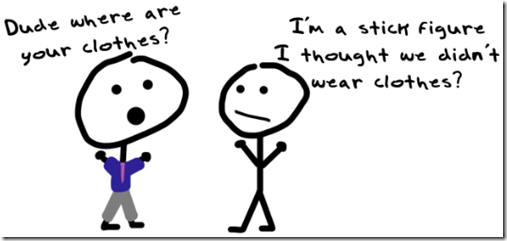Matthew Dicks's Blog, page 412
March 11, 2014
Can’t imagine where she gets this.
My wife was trying to play a princess game with our daughter, Clara, but she was having a hard time following the script that Clara had already written in her head.
Elysha: You’re a little controlling.
Clara: Yeah, because I have such good ideas.
March 10, 2014
My daughter has an imaginary friend.
My daughter has an imaginary friend named Aubrey. She calls Aubrey her “pretend friend.”
Needless to say this thrills me. Not only did I write a novel about an imaginary friend, but I had a long-term imaginary friend when I was a child, too.
So far I have learned that Aubrey:
Sleeps late and needs to be awakened by a pretend trumpet.
Goes everywhere with Clara, even if Clara doesn’t mention her.
Likes puzzles.
I’m so excited.
March 9, 2014
When you care enough about the lady in your life to purchase an app and automate your expressions of affection
It’s really not a bad idea.
I didn’t purchase it, but I understand why someone would.
My brand new, completely unrealistic, possibly supercilious goal that you should try, too.
I saw a middle-aged man yesterday wearing a pink shirt that didn’t quite cover his belly, a pair of yellow shorts,work boots without laces and no socks.
I turned to comment on his appearance to my wife, but then I stopped myself.
We have no right or reason to think less of a person because of their physical appearance.
We have no right or reason to speak poorly of a person because of their physical appearance.
A person should be able to wear whatever he or she wants without ever having to suffer a negative word about it from anyone, to their face or behind their back.
Ever.
I have a policy to never comment on the physical appearance of a student, and I have managed to adhere to this rule for a long, long time. I’d like to think that I could apply a similar rule in the rest of my life. While I have no reason to avoid complimenting adults on their physical appearance, I’d like to think that I could refrain from negative comments of any kind at all times.
I know this is unrealistic. Even if I can ignore a person’s odd combination of clothing (and I usually can), there are so many other aspects of a person’s physical appearance that might illicit a negative comment.
Unusual haircuts. Numerous tattoos. Excessive plastic surgery. Gaudy jewelry. Ostentatious displays of designer labels. Bizarre piercings. Overdone makeup. Stupid little alligators embroidered over the right breast.
The list is endless.
Still, I’ve decided that I’m going to try. This is my goal.
It may seem ridiculous, supercilious, unnecessary or even stupid, but I also think it’s the right thing to do, and the right thing trumps ridiculous, supercilious, unnecessary, stupid, and everything else, every time.
I certainly don’t expect to be able to stop thinking these ugly thoughts about the physical appearance of others. I will try my best, but I’m not capable of miracles.
But we are all capable of keeping our mouths shut when one of those ugly thoughts enters our minds, as I managed to do yesterday.
This is my goal. When one of those ugly thoughts about a person’s physical appearance enters my mind, I will keep my mouth shut.
It won’t be easy, but as I’ve said before, the easy thing and the right thing are rarely the same thing.
Brilliant writing can be found anywhere.
I read a review of M. Night Shyamalan’s 2004 film The Village the late, great Roger Ebert’s last night.
It’s an absolute brilliant piece of writing.
Here’s an excerpt from it:
“The Village is a colossal miscalculation, a movie based on a premise that cannot support it, a premise so transparent it would be laughable were the movie not so deadly solemn…
Solemn violin dirges permeate the sound track. It is autumn, overcast and chilly. Girls find a red flower and bury it. Everyone speaks in the passive voice. The vitality has been drained from the characters; these are the Stepford Pilgrims. The elders have meetings from which the young are excluded. Someone finds something under the floorboards. Wouldn’t you just know it would be there, exactly where it was needed, in order for someone to do something he couldn’t do without it.
To call the ending an anticlimax would be an insult not only to climaxes but to prefixes. It’s a crummy secret, about one step up the ladder of narrative originality from It was all a dream. It’s so witless, in fact, that when we do discover the secret, we want to rewind the film so we don’t know the secret anymore.”
It’s a good reminder that brilliant writers are not only writing novels, poems, short stories and the like. Roger Ebert’s opinions of films were spot-on, but it was the way in which he expressed those opinions that made him timeless.
March 8, 2014
Fathers don’t get to teach their children to swim anymore.
When I was a boy, my father taught me how to swim. I would cling to the edge of my grandfather’s pool, my father would push me off the edge and toward the center of the pool, and I would flail my way back to the edge.
He would repeat this process again and again until I was a capable dog-paddler.
It wasn’t the best way to teach a kid to swim, but it was the 1970’s. We weren’t wearing seatbelts or life jackets either. Airplanes were being hijacked every week. Kids rode in the back of pickup trucks.
My father’s method of swim instruction seems rather apropos to the times.
Eventually, I learned additional strokes and ultimately became a life guard for the Boy Scouts.
When I was growing up, professional swimming lessons were not an option. Maybe children didn’t learn to swim via swimming lessons back then. Perhaps swimming lessons weren’t available in the town where I grew up. More than likely, my family simply didn’t have the money to afford swimming lessons.
Whatever the reason, my father taught me how to swim, and I have fond memoires of those experiences.
While I certainly intend to contribute to my children’s swimming instruction in every way possible, it has become apparent to me that my children will be taking swimming lessons in the near future. It’s simply how it is done today. It’s what my wife wants for our kids. Nearly every student in my class learned to swim via professional swim lessons. Almost every child I know is taking, has taken or will be taking swim lessons.
I think this is kind of sad.
When I am asked who taught me to swim, I answer, “My Dad.” And because my father disappeared from my life for more than two decades, I don’t get to answer “My Dad” very often.
I’m glad my father taught me to swim. It seems like the thing that a father (or mother) should do.
When my kids are asked the same question years from now, they will likely answer, “Some nameless, faceless, quasi lifeguard/swim instructor at the local pool.”
There was a time when fathers and mothers taught their children to swim as a right of passage.
Not it’s the writing of a check.
I think something is lost when we delegate parental responsibilities onto professionals, even if the instruction that our children receive may be better than our own.
Putt-Putt Perfection
The Friday and Saturday nights of my youth were often spent at a now-defunct Putt-Putt course in Framingham, Massachusetts.
I was not seeking putting perfection as much as I was attempting to impress girls with my wit and guile, but beneath the desire to make girls laugh and demonstrate my male prowess was an almost equally strong desire to win.
I was shooting for a hole-in-one every time.
The chase of perfection is noble at any level. When achieved, it is a great thing, even on a mini golf course.
This is a great short film about the chase for Putt Putt perfection.
March 7, 2014
Amazing Mommy
At the risk of making a broad and sweeping generalization, I believe that women are most often governed by a sense of duty and the guilt associated with failing to meet that duty, while men are most often governed by their own selfishness.
It’s only when we are able to overcome these natural tendencies that we can be successful, happy human beings.
As a result of these natural tendencies, most mothers feel an overwhelming sense of obligation to their children and a concurrent sense of guilt after failing to meet the high (and sometimes impossible) expectations that they set.
In short, mothers rarely give themselves enough credit.
To this end, I offer my wife this reminder:
On Saturday, I brought my five year-old daughter, Clara, to the library. We climbed the stairs to the children’s section, and I plopped myself down in a cushioned chair with a stack of picture books while Clara went off on her own.
On her way to the computers, she stopped at the sight of a picture book standing up on a shelf. She stared at it for a moment, grabbed it, and brought it over to me to read to her. When we finished, she kissed me and listed all the books that she wanted to read before bed tonight. I agreed, and she was off again.
Next, she made her way to the computer nook, sat down in front of a computer and began playing a Dora the Explorer game. A mother and her toddler were sitting at the adjacent computer, and behind them, babbling in a stroller, was an infant.
Clara played her game for about 30 seconds before stopping, turning to the mother and saying, “Hi, my name is Clara. What are your kids’ names?”
The mother smiled, looked a little surprised, and then told her the names.
Clara introduced herself to the toddler, asked her age, said a few things about the game they were playing (including pointing out that the computer was equipped with a touch screen, which is “a lot easier than a mouse, especially for little kids”), and then turned around to look at the baby. “You’re baby is so cute,” she told the woman.
“Thank you,” the woman.
“Your welcome,” Clara said. “If she gets fussy, I can play with her so you can finish your game.”
The woman thanked Clara again, and Clara returned to her game.
After 15 minutes, the computer timed Clara out. Though she had the option of restarting since no one is waiting, Clara walked away and went over to the train table, where she introduced herself to a little boy already playing with trains. They played together for ten minutes while I sat and watched.
After a couple minutes, the mother walked over to me. “Is that your daughter?” she asked.
“Yes, it is.”
“How did she ever become so social? It was like talking to a little adult.”
“Her mother,” I said. “It’s all her mother.”
Yes, it’s true. Clara does not pick up her toys often enough. She does not eat a wide variety of food. There are days when she watches too much television. She’s impossible to extract from the bath in a timely manner. She’s capable of the occasional temper tantrum.
None of this is Elysha’s fault. No one is to blame for any of this. This is simply Clara being Clara.
But Clara’s love for books. Her ability to socialize with both young and old. Her manners. Her willingness to help a stranger.
Even her love for babies.
That’s all her mother.
Elysha will deny most of it. She will reject the credit. Disregard any accolade. Point to all the areas still in need of improvement.
This is what mothers do. They may acknowledge the fruits of their labor, but only in the most perfunctory way. Briefly and without fanfare. Better to instead focus on what still needs to be done. The progress still required.
This can’t be fun. It must be exceedingly stressful at times.
Telling a mother to be a little more selfish is oftentimes a losing battle. Imploring her to take a little more credit for her accomplishments is a frequently futile gesture. Assuring a mother that their child is fine is like spitting into the wind.
But I still try.
My daughter is an amazing little girl, thanks in great part to her mother. She may not believe it or give herself enough credit or instead focus upon the work still required, but that doesn’t make it any less true.
Exit the bigots
The Boy Scouts of America have lost six percent of their members since changing their policy on gay participants, the group recently announced.
Some may think this is bad news.
I think the opposite.
They’re merely weeding out the bigots.
It’s true that in some cases, unbiased boys may be denied the benefits of Scouting because of their bigoted parents, but I think the greater percentage of the decrease in membership is the result of the elimination of bigotry.
As a former Boy Scout who loves Scouting and owes a great deal to the organization, my hope is that they reverse their decision on allowing gay adult leaders soon, too.
Scouting may lose another 6% of it’s membership or more by allowing openly gay adult leaders to serve, but I’d much rather see a smaller organization that adheres to the tenets of the Boy Scout Law and Oath than a larger organization populated by bigots and fools.
March 6, 2014
Japan is a scary place.
A strange place, at least in terms of advertising, as well.













